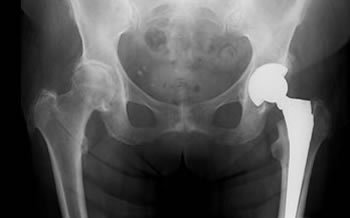Global hip, knee reconstruction market to crawl towards $16.5 bn by 2022
July 11, 2016 | Monday | Features | By BioSpectrum Bureau
Global hip, knee reconstruction market to crawl towards $16.5 bn by 2022
(Photo Courtesy: www.orthosurgeryaz.com)
The global hip and knee reconstruction market, which encompasses 39 countries and includes primary, partial, and revision hip and knee replacements, as well as hip resurfacing, will expand slowly at a compound annual growth rate of 2.5%, from just under $14 billion in 2015 to $16.46 billion by 2022, according to research and consulting firm GlobalData.
The company's latest report states that despite the rising prevalence of patients requiring hip and knee replacements and a trend towards early surgical intervention in younger patients, market growth will be minimal due to a combination of austerity measures in Europe, the medical device excise tax in the US, and deferrals of elective surgeries.
Ms Linda Tian, GlobalData's Managing Analyst covering Medical Devices, explains: "While total joint replacement surgery is a highly effective intervention for treating the symptoms of degenerative joint disease, the modest growth in procedure volume will be largely offset by negative pricing pressures and cost-containment measures in healthcare systems.
"Current economic conditions are forcing patients to reconsider hip and knee replacements, and the latter in particular can be deferred for long periods following viscosupplementation or the removal of inflamed synovial tissue, debris, and impinging bone spurs, with dramatic symptomatic relief."
GlobalData believes economic pressures will be a particular barrier to growth in the US and Europe, resulting in only slight revenue increases in the large joint reconstruction market to 2022.
Ms Tian continues: "In Europe, budget constraints stemming from the ongoing Eurozone debt crisis mean the market for joint replacement implants looks gloomy. Indeed, adoption of new products is expected to be slow in Europe as surgeons are inclined to stay with familiar products, as questions remain whether the benefits of premium implants can outweigh their extra costs.
"Similar issues can be seen in the US, as the medical device excise tax, which imposes a 2.3% tax on domestic sales of medical devices, puts an immense and costly burden on manufacturers. Some of the ramifications of tax implementation include increased price tags, layoffs, cuts in research and development, and delayed expansion plans, which will adversely affect growth prospects for the hip and knee reconstruction markets during the forecast period."









